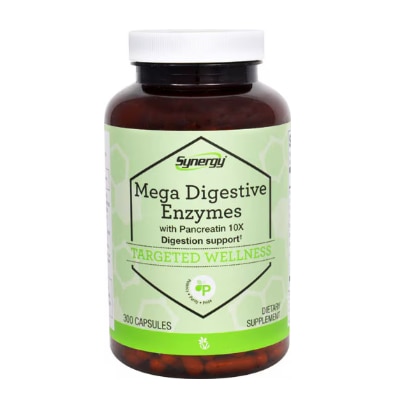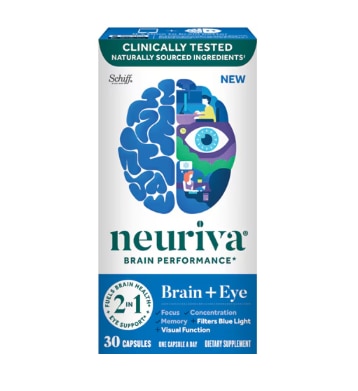Before you take any type of dietary supplement, the burden of making sure it is a good choice falls squarely on your shoulders.
Unlike medications, the U.S. Food and Drug Administration generally does not require that makers of supplements prove that their products are safe or effective.
That means it is important to shop intelligently when choosing a supplement. Here are some of the red flags you should look for that might help you spot a “bad” supplement.
How to Spot a ‘Bad Supplement’
Be wary of supplements with high levels of specific ingredients
Vitamins and minerals generally promote good health, but too much of a good thing can be dangerous.
Some supplements may contain high levels of specific ingredients. If you take a supplement with high levels of such ingredients, it might not be great for your health.
For example, the National Institutes of Health notes that excessive levels of vitamin A can promote headaches and even damage your liver. High levels of iron can trigger vomiting and may damage organs in the body.
As the NIH points out, many of the foods we eat — such as breakfast cereals and beverages — are fortified with vitamins and minerals. So, eating these foods and adding supplements to the mix can tip you over safe levels of some nutrients.
Use caution with supplements that do not have safety seals
The FDA has established what is known as “good manufacturing practices” — or GMPs — and requires supplement companies to follow these guidelines. The goal of GMPs is to “help ensure the identity, purity, strength and composition” of dietary supplements, according to the FDA.
However, some supplement companies regularly violate these rules. Researchers at Harvard Medical School found that dozens of brands of gummies had melatonin levels far in excess of what was listed on the label — up to 347% higher, which can pose a health danger.
Since you cannot necessarily trust what you see on the label, you might consider turning to the recommendations of experts.
It’s always wise to avoid any product that does not provide a certificate of analysis or some form of third-party certification to verify quality and ingredients, says Jordan Glenn, head of science at SuppCo, a tracker for managing supplement and vitamin use.
“Plenty of companies hide behind flashy branding and vague claims of being tested,” he says. “But if they can’t show proof, it’s not worth your trust.”
Independent organizations test supplements to make sure they are meeting requirements. Those that do may receive a seal of quality assurance that the manufacturer can feature on the product label.
It’s important to note that these seals do not guarantee a supplement is safe or effective. Some seals are considered more legitimate that others.
The National Institutes for Health recommends looking for seals on supplement products from the following organizations:
- com
- NSF International
- S. Pharmacopeia
Steer clear of supplements with specific types of ingredients
Some ingredients found in supplements are known to raise safety concerns. The Federal Trade Commission says all of the following ingredients are potentially dangerous to your health:
- Comfrey
- Chaparral
- Lobelia
- Germander
- Aristolochia
- Ephedra (ma huang)
- L-tryptophan
- Germanium
- Magnolia-stephania
- Stimulant laxative ingredients, including those found in dieter’s teas
For example, comfrey and aristolochia have been associated with damage to the liver and kidneys, respectively.
You can visit the FDA website to find alerts about the safety of dietary supplement products. And if you have a negative experience with a dietary supplement, you can report the details to the FDA.
Be careful when purchasing bargain supplements
Glenn says some supplement brands advertise products that offer unusually high dosages at prices far lower than the rest of their competitors in the market.
“That’s an immediate red flag,” he says.
Producing a high-quality supplement isn’t cheap, Glenn says. “It requires real effort and cost,” he says.
SuppCo generates a TrustScore that ranks supplements across 29 different quality attributes. Products that promise high dosages at bargain prices often fail SuppCo’s quality checks, Glenn says.
More often than not, the promise of high dosages at low prices is just a marketing tactic, Glenn says. He urges you to “steer clear” of such products.
“If a brand’s price-to-dosage ratio looks too good to be true, it probably is,” he says.
Never take a supplement for the first time before consulting a physician
The FDA says about 75% of Americans take some type of dietary supplement, and up to 100,000 such products are available.
As the federal government notes, some supplements have proven benefits, but many others do not.
For example, melatonin appears to help reduce the effects of jet lag, but there is no evidence that ginkgo can help prevent dementia, according to the U.S. Department of Health and Human Services National Center for Complementary and Integrative Health.
Even if an ingredient has been shown to be effective in boosting health, that doesn’t necessarily mean all supplements containing that ingredient are effective.
In addition, some dietary supplements might contain ingredients that can interfere with medications, preventing the drugs from doing their job in protecting your health.
For all these reasons, the FTC urges you to always consult with a physician before you begin to take a supplement.




